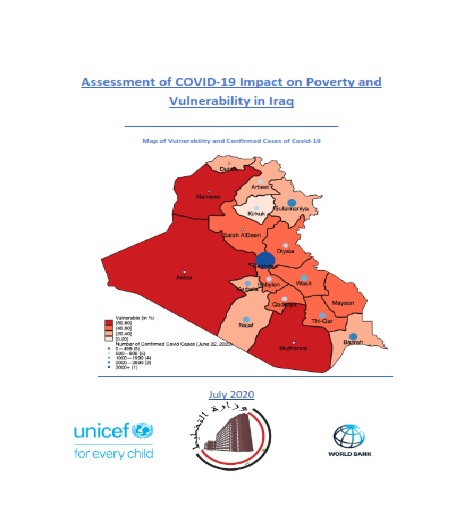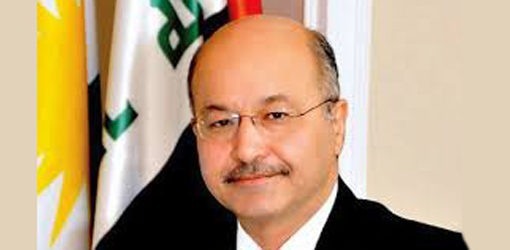1. Introduction
Today the world is facing the novel Coronavirus “COVID-19” pandemic, to which countries all over the world are stepping up their response to control the spread of infection and to strengthen prevention and health care programs. In that direction, on the onset of discovering the first case, the Iraqi government and the regional
government of Kurdistan started adopting a multitude of measures and keeps on adjusting and expanding their scope following the spread pattern of the virus and placing the highest priority to preserving the lives and safety of citizens. At the same time, the government is cognizant that the measures deployed (including
curfews, limiting mobility, and the associated confinement of businesses beyond those considered essential, and the closure of schools and universities) would have negative socio-economic consequences on population and their living conditions.
The impacts of the pandemic will be further exacerbated by the economic shock from the plunge of oil prices in the international market tightening Iraq’s fiscal space further. The largest impact of the twin e crises will fall on the poorest and those who suffer from weak resilience to face and overcome shocks, and families whose
breadwinner works in economic sectors most affected by the crises. Within this context and in response to the request of the Ministry of Planning, the World Bank and UNICEF are providing technical support within the framework of their ongoing partnership with the Ministry to support its efforts in responding to this crisis. This work is also benefiting from the technical support of the Oxford Poverty and Human Development Initiative through its partnership with UNICEF. This support consists of:
1. conducting a rapid assessment of the impact of the crisis on poverty and vulnerability (including number of scenarios),
2. simulating the impact of mitigation measures including social protection interventions in containing the repercussions of the crisis on poverty and vulnerability,
3. quick update of poverty maps to guide interventions, and 4. monitoring poverty and vulnerability indicators and offer feedback on mitigation measures.
Source: UNICIEF, MOP, WB
To continue reading the full report. Please click on this link.
Assessment of COVID-19 Impact on Poverty and Vulnerability in Iraq








Comment here